China's largest edible oil processming machine manufacturer
China's largest edible oil processming machine manufacturer
Rapeseed oil is also named canola oil. We extract the oil using a mechanical Oil Press without the using of chemicals to ensure the natural goodness of the oil is preserved. Rapeseed oil production process is the third in production of vegetables oils. It has also been ranked among the best in the production of protein. Here are the 4 main processes that are involved in having oil extracted from rapeseeds, including pretreatment, prepressing/pressing/ section, solvent extraction section, refinery.
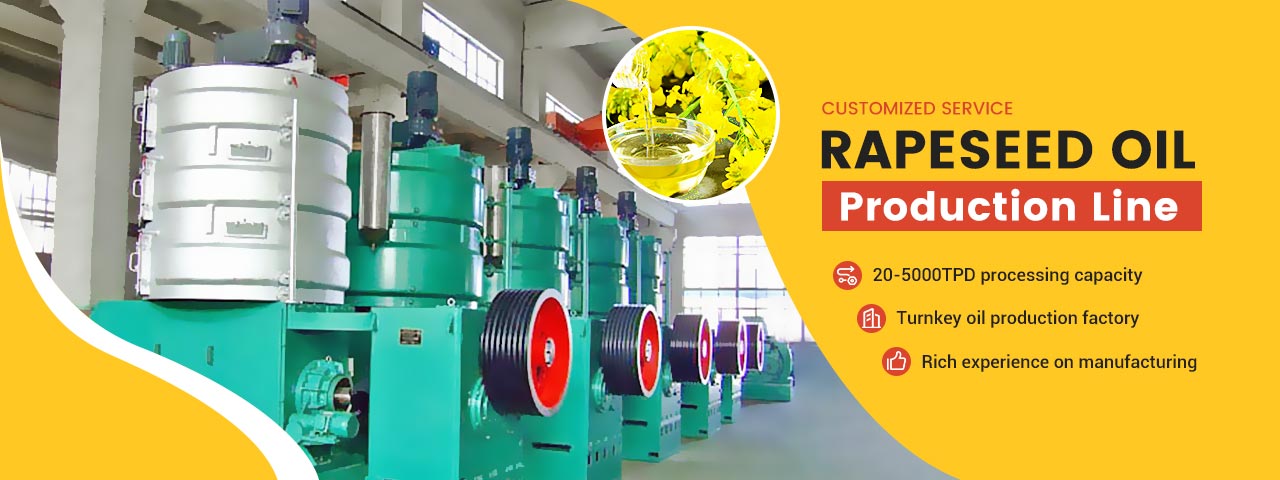
The purpose of rapeseed preparation plant is to extract a portion of oil by mechanical pressing while providing pressing cakes for extraction plant. Main pretreatment process include: Seed Cleaning & Weighing, Conditioning, Flaking, Cooking, Pressing, Oil Residue Separation.
Cleaning & Weighing Section
Rapeseeds from daily bin or warehouse is treated by magnetic separator, weighing scale and screener to remove impurities.
Conditioning Section
The purpose of conditioning is to adjust moisture, temperature and tenacity of rapeseeds for better flaking. Vertical conditioner is used in this section.
Flaking Section
The purpose of flaking is to flake the broken rapeseeds into thin flakes (from 0.3 to 0.35mm) for the subsequent oil extraction through mechanical pressing. In addition, flakes thickness can be adjusted through roll pressure adjustment device.
Cooking Section
Horizontal drum rotary cooker is designed to adjust temperature and moisture of rapeseeds flakes prior to mechanical pressing, improving oil yield greatly.
Pressing Section
Rapeseeds is a kind of high oil-containing oilseed. Generally it is necessary to extract a portion of oil by mechanical pressing prior to subsequent process. The content of residual oil in pressing cakes is around 18%. Cakes is then treated by solvent extraction while crude oil is to be filtered.
Oil Residue Separation Section
Due to high content of residue in crude oil, it is necessary to separate oil residue by oil drag conveyor firstly, crude oil then enters to settling tank for further separation. Collected residue is returned to pressing section while crude oil from settling tank is pumped to horizontal screw centrifuge or leaf filter for further removing impurities.
Cooling Section
Hydraulic turning cooler with complete set of wind network system is designed to cool down pre-pressing cakes to 55~60℃, then cakes is conveyed to extraction plant.
There are four big parts in solvent extraction workshop.They are solvent system, desolventizing system, condensing system and recycling system. We can get rapeseed wet meal and crude rapeseed oil. Rapeseed wet meal can be as animal feed, crude rapeseed oil contains solid impurity, chemical impurity and smelly odor etc. So crude rapeseed oil can go to next refinery workshop.
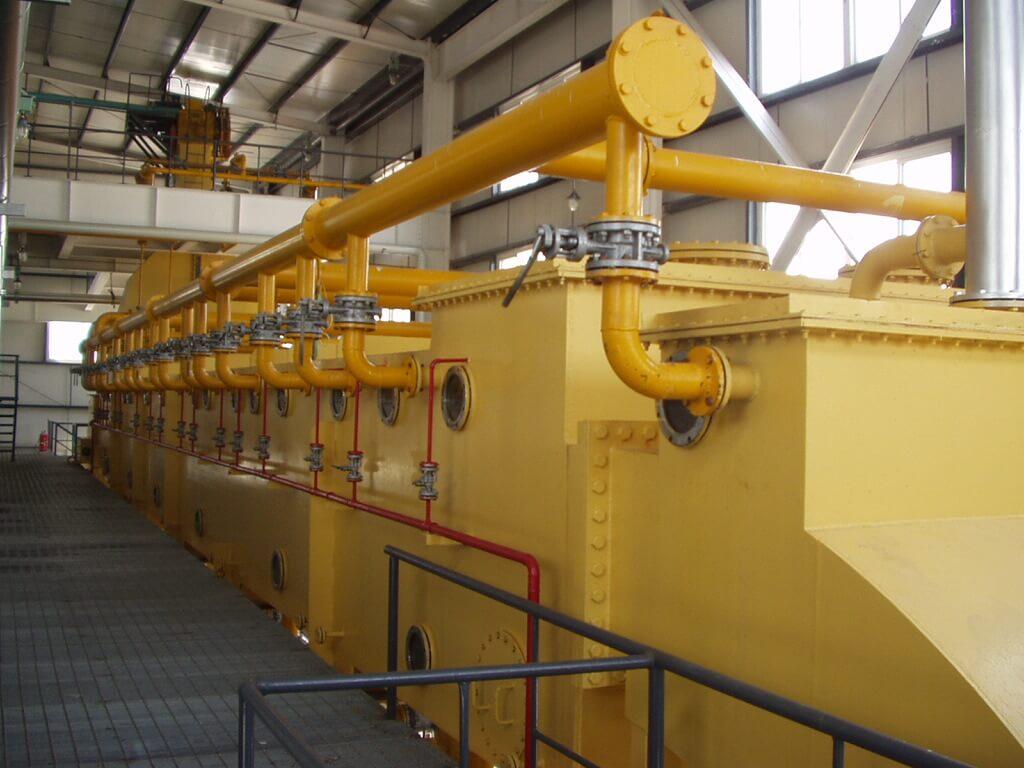
Refine crude rapeseed/canola oil into refined canola oil. Through degumming, deacidification, decolorization and deodorization process, remove impurities in the crude canola oil, such as gums, FFA, pigment, bad odors, etc. Aims at improving the canola oil storage stability, flavor and color, to get standard quality edible oil.
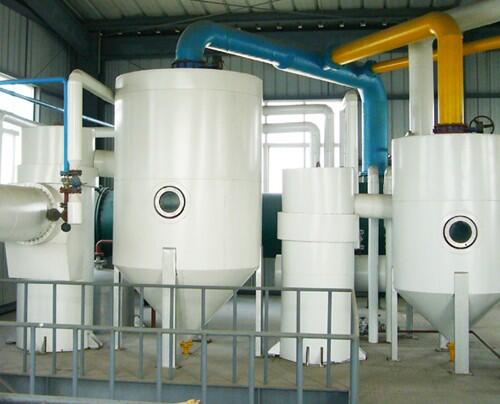
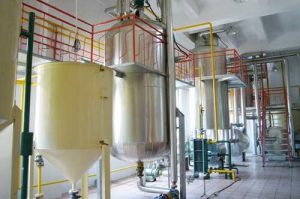
Hydration degumming
Hydration degumming can remove peptidic impurities in rapeseed crude oil. When degumming, first heat the crude rapeseed oil to 65-70°C, then add hot water at the same temperature equal to approximately 5% of the oil volume while stirring. During stirring, the peptidic impurities gradually condense to form micelles due to their hydrophilicity. The precipitate is separated and then discharged.
If the phospholipid content is high, a two-step degumming method can be adopted. First, use ordinary hydration degumming, and then perform acid refining degumming (that is, adding phosphoric acid to rapeseed crude oil). The oil after this treatment can basically achieve the decolorization of raw oil. phospholipid content requirements.
Alkali refining deacidification
Alkaline refining and deacidification can remove free fatty acids in rapeseed crude oil, reduce the acid value of the crude oil and avoid rancidity. The common deacidification method is chemical deacidification, that is, adding NaOH alkali solution to the crude oil, stirring to make the acid and alkali neutralize the free fatty acids. After the neutralization reaction, a by-product-soapstock will be produced, which will be precipitated and discharged to complete deacidification. .
Some rapeseed oil processing plants will choose physical deacidification to remove free fatty acids, that is, passing high-temperature water vapor into the crude oil and using the principle of distillation to remove free fatty acids. Physical deacidification has less loss and good deacidification effect, but the cost will be higher. Customers can choose the deacidification method according to their personal needs and deacidification requirements.
Adsorption and decolorization
The crude oil after degumming and deacidification enters the decolorizing pot, is heated to 90°C with thermal oil and stirred, and dried and dehydrated under a vacuum of 99kPa for 30 minutes; then white clay is added, and its adsorption effect is used to remove the pigment in the crude oil; adsorption The final crude oil is pumped into a leaf filter to circulate and filter out the waste clay adsorbed with pigments, making the rapeseed oil bright in color.
Deodorize
Deodorization can effectively remove odor substances in rapeseed oil and improve its flavor and taste. Hutai adopts the steam stripping deodorization process, passing direct steam into the deodorization pot under vacuum, raising the temperature of the deodorized oil to 260°C, and utilizing the difference in volatility between crude oil and odor substances to eliminate odors.
Since the temperature during deodorization must reach about 260°C, the deodorization equipment in Huatai Oil’s rapeseed oil refining equipment is all made of stainless steel. Other equipment supports carbon steel and stainless steel and can be customized according to customer needs.
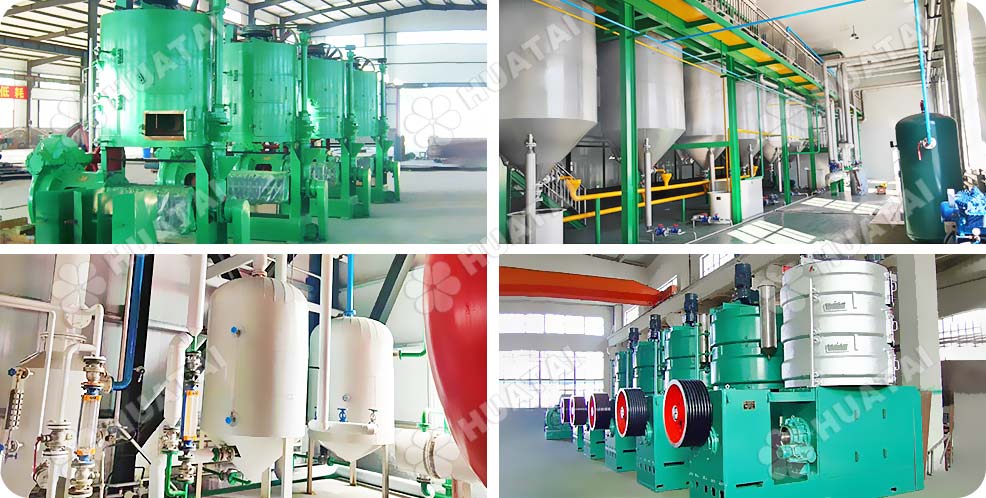
Huatai Oil Machinery, was founded in 1988, which is a large-scale oil project manufacturing enterprise.